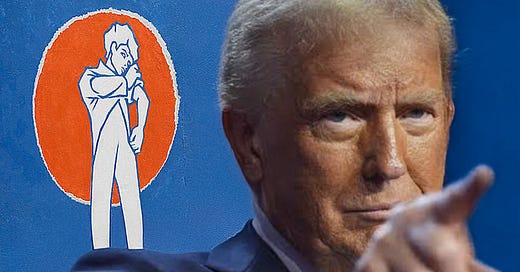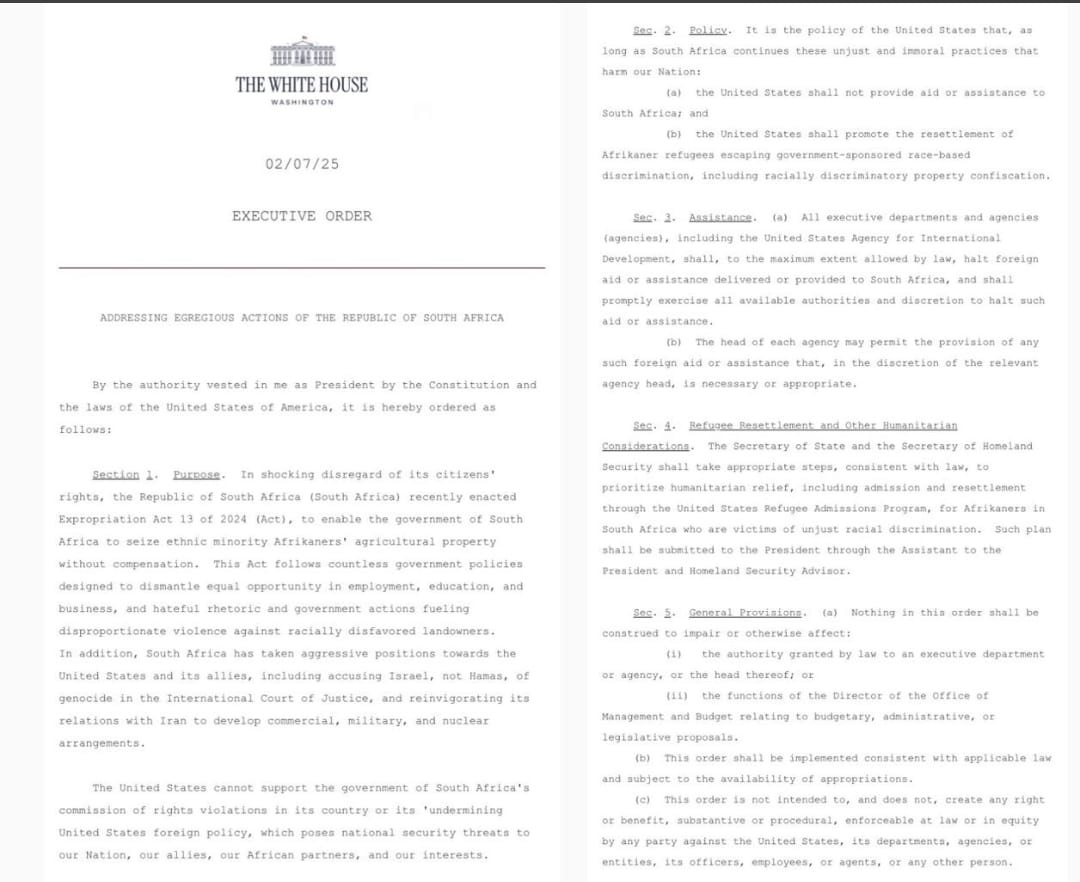I'm writing this from Orania, where the news of President Trump's February 7th executive order has created significant discussion. The order represents perhaps the most substantial shift in US policy toward South Africa since the end of apartheid, and its implications deserves commenting
The executive order effectively cuts US aid to South Africa and - more significantly - establishes a framework for accepting Afrikaner refugees. This is a remarkable development that few would have predicted even a year ago.
What's particularly striking is the order's explicit recognition of "government-sponsored race-based discrimination" and "racially discriminatory property confiscation" in South Africa. This isn't merely diplomatic language - it's official acknowledgment of what I and others have been documenting for years. If you haven't seen it yet, my 2018 documentary "South Africa: A Reversed Apartheid?" provides extensive evidence of these systematic policies that are now, finally, being recognized at the highest international level.
Here in Orania, I had a morning discussion with Orania Movement head Joost Strydom about the executive order. His message was crystal clear: "Help us here." He emphasized that what Orania seeks isn't U.S. tax dollars or refugee programs, but rather international recognition for their legitimate pursuit of Afrikaner autonomy - a right that the South African government itself acknowledged in the 1990s as legitimate.
The timing of Trump's order, following South Africa's Expropriation Act 13 of 2024, marks a significant shift in international recognition of the situation. While it creates a precedent for acknowledging anti-white discrimination and may pressure the South African government to moderate its policies, the real significance lies in its potential for legitimizing local solutions.
However, let's be clear about what this executive order means practically:
It provides a potential exit path for those who choose to leave
It may pressure the South African government to moderate its most extreme policies
It creates international precedent for recognizing anti-white discrimination in South Africa
Walking through Orania today, observing the ongoing construction projects and expanding infrastructure, it's evident this community has chosen a different path - not fleeing, but building sovereignty from the ground up. One of the most crucial steps forward for Orania would be territorial recognition, and this executive order from the Trump administration could be one step in the right direction. After all, the solution to the problems that the executive order addresses is already represented here in Orania.
The order's recognition of "disproportionate violence against racially disfavored landowners" also validates what we've been reporting about farm attacks and farm murders. This official acknowledgment could help legitimate security measures taken by communities to protect themselves.
The reality is that while this order provides important recognition and some practical options, the future of Afrikaners will ultimately be determined by what they build here, not by what refuge is offered elsewhere. True security won't come from foreign intervention or escape routes, but from building sustainable independence. This is precisely what I observe happening - not just in Orania, but in the growing number of Bitcoin circular economies emerging across South Africa.
I'm currently working on a documentary focusing on exactly this phenomenon - how communities are creating monetary sovereignty by separating money from state control. In a country where the government threatens property seizure without compensation, building these independent financial systems isn't just forward thinking - it's becoming a necessity for survival.
More analysis to follow. If you're interested in this kind of topic, make sure to join us as a subscriber.
I'll continue monitoring the developments and implications, and the next few weeks should reveal much about both South Africa's response and potential ripple effects through the international community.
Best regards,
Jonas Nilsson






break down the "extreme policies" 🥺